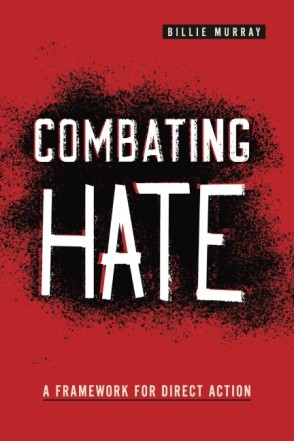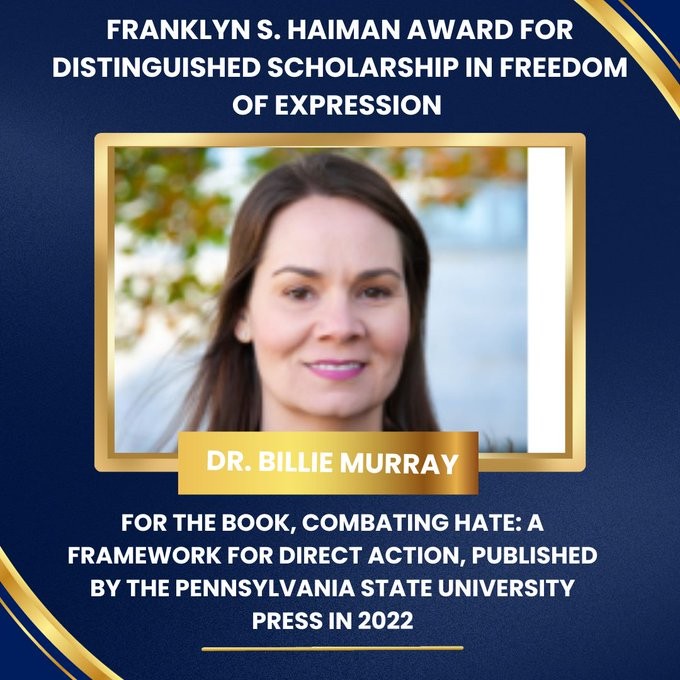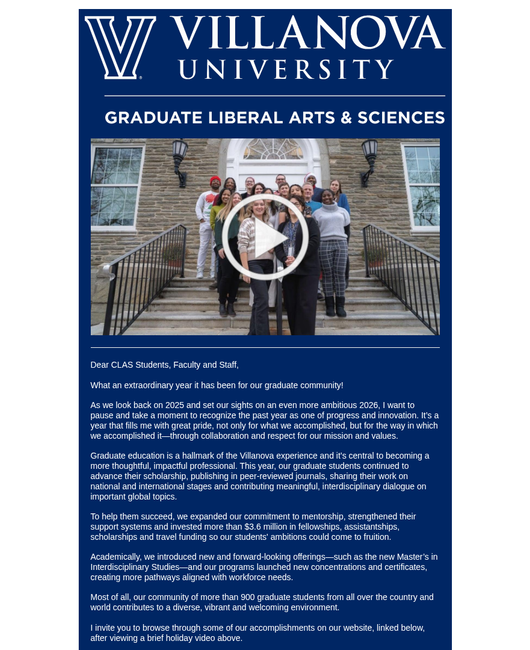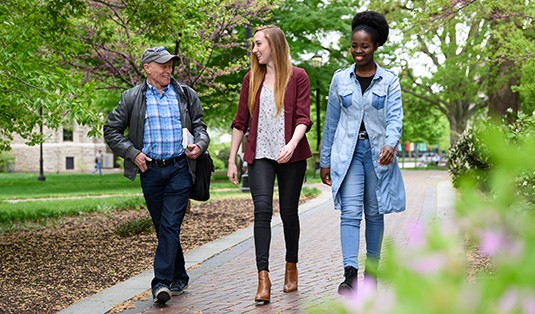Combating Hate Speech in 2023

Billie Murray, PhD, won the National Communication Association Franklyn S. Haiman Award for Distinguished Scholarship in Freedom of Expression for her book, Combating Hate: A Framework for Direct Action


According to Billie Murray, PhD, associate professor in the Department of Communication and assistant director for Academics, Center for Peace and Justice Education, reflecting on America’s past starts with acknowledging the country’s history of and ever-growing propensity toward hate speech, and her work in this area was lauded by the National Communication Association (NCA) at its 2023 annual convention.
Dr. Murray won the NCA's Franklyn S. Haiman Award for Distinguished Scholarship in Freedom of Expression for her book, Combating Hate: A Framework for Direct Action (Penn State University Press).
As defined in her book, hate speech, “defames, denigrates, dehumanizes, and/or inspires violence against particular groups of people on the basis of their religion, ethnicity, nationality, race, gender or other identity category.”
Hateful rhetoric is not restricted to the fringes of society as it once might have been. It is emerging within schools, localities and central government. Yet, as Dr. Murray points out, America’s enmeshment is not fated.
Dr. Murray’s commitment to fieldwork has taken her throughout the country to protests at hate group rallies in Stone Mountain and Newnan, Ga., Columbia, S.C., and Washington, D.C. At these rallies, and through the lens of a researcher, scholar and activist, Dr. Murray sought to identify oppositional tactics used by counter-protestors that succeeded in diminishing the presence and the effects of hate speech.
As a result of her observations, Dr. Murray coined the Counterspeech System, a strategy based on the idea that more speech (not avoidance) is the best way to counter hate speech. And there are two successful ways of doing just that:
Confrontational Tactics focus on combating hate through direct action. For example, "Angel Action" is a term used for a confrontational tactic employed at funerals in which activists dress in white angel costumes, rising seven feet tall with ten-foot wing spans, to form a shield with their bodies while creating a barrier between mourners and hate groups. For non-funeral occasions, counteractive celebratory events such as public dance parties, pride celebrations and noise brigades (the drowning out of hate speech with things like kazoos or brass bands) aim to quell hate with love.
Persuasive-Dialogic Tactics focus on both public and interpersonal discussions. For example, persuadable members of the general public may receive the message that hate is a problem (through media campaigns and education) and thus come to the conclusion that action must be taken to combat it. Additionally, an interpersonal dialogue with individual members of a hate group in which messaging about compassion, human dignity and mutual respect is initiated can lead to self-reflection and the use of resources such as de-radicalization support groups (like Life After Hate).
It is important to acknowledge that although successful, Counterspeech System tactics do not prevent hate groups from organizing or disseminating information. More speech serves to combat existing hateful rhetoric.
“Our country needs a shift in how it understands free speech and the role of police protection of hate groups, especially if we are going to continue to win this fight,” says Dr. Murray.
It will take federal action coupled with a coalition of those engaging in oppositional tactics to bring about lasting change. But still, despite the challenges, Dr. Murray agrees that combating hate speech is worth the fight.
Learn more about the Villanova University Graduate Program in Communication.
About Villanova University’s College of Liberal Arts and Sciences: Since its founding in 1842, Villanova University’s College of Liberal Arts and Sciences has cultivated knowledge, understanding and intellectual courage for a purposeful life in a challenged and changing world. With 39 majors across the humanities, social sciences and natural sciences, it is the oldest and largest of Villanova’s colleges, serving more than 4,500 undergraduate and graduate students each year. The College is committed to a teacher-scholar model, offering outstanding undergraduate and graduate research opportunities and a rigorous core curriculum that prepares students to become critical thinkers, strong communicators and ethical leaders with a truly global perspective.


